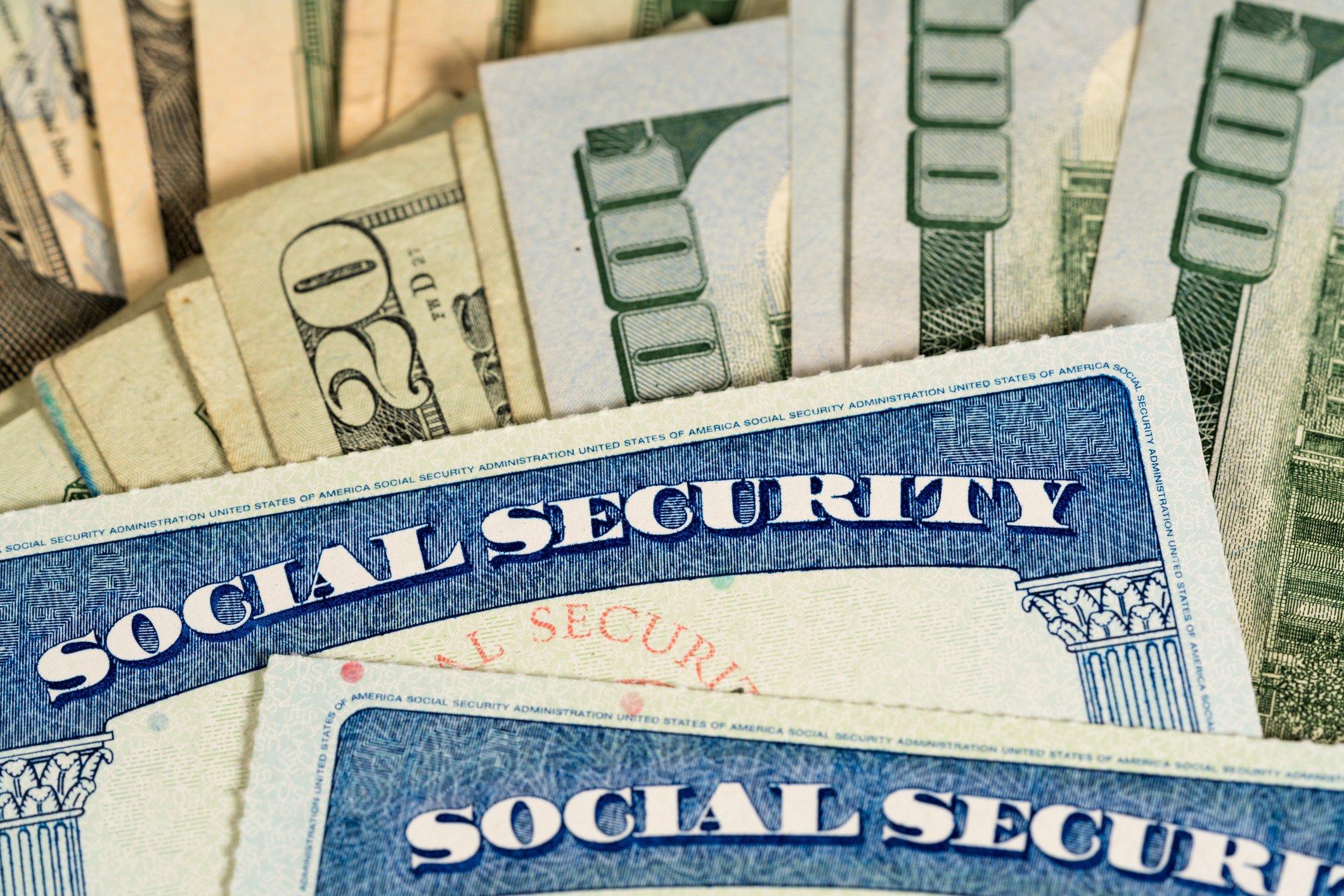We all make mistakes. We make non-financial ones, such as brewing caffeinated coffee in the evening when we meant to brew some decaf, and financial ones, such as not saving and investing enough to build a sufficient war chest for retirement.
Another kind of mistake that shortchanges our comfort in retirement is a mistake we make related to Social Security. That's dangerous, since fully 48% of married elderly Social Security beneficiaries and 69% of unmarried ones get 50% or more of their income from it, according to the Social Security Administration (SSA).

Image source: Getty Images.
Here are five Social Security mistakes many people make. You may be making one or more without even knowing it.
No. 1: Not setting up a "my Social Security" account
If you haven't yet set up a "my Social Security" account at the SSA website, you should -- for several reasons. First, it's where you can look up estimates of your future benefits at any time and see the SSA's record of your income and taxes paid into the Social Security system.
It's also good to set up this account as soon as possible because if you don't, an identity thief might. That's one way that crooks are causing massive headaches for many Americans -- posing as them online and trying to get their Social Security benefits.
No. 2: Not checking your earnings history
While you're at your my Social Security account, look over that record of your income over your entire working life and see if it looks correct. If you keep good records, you may actually be able to check it closely.
It's smart to review the record every now and then so that you can spot any possible errors and have them fixed. If the record doesn't reflect all your earnings, when it comes time to calculate (and pay!) your benefits, you'll get shortchanged.
No. 3: Not knowing your "full retirement age"
You should also find out your "full" retirement age. That's the age at which you can start collecting the full benefits to which you're entitled. It's important to know that age because it's likely to be a key part of any Social Security strategizing you may do. The full retirement age was formerly age 65 for everyone, but it's now 66, 67, or somewhere in between for most folks:
|
Birth Year |
Full Retirement Age |
|---|---|
|
1937 or earlier |
65 |
|
1938 |
65 and 2 months |
|
1939 |
65 and 4 months |
|
1940 |
65 and 6 months |
|
1941 |
65 and 8 months |
|
1942 |
65 and 10 months |
|
1943-1954 |
66 |
|
1955 |
66 and 2 months |
|
1956 |
66 and 4 months |
|
1957 |
66 and 6 months |
|
1958 |
66 and 8 months |
|
1959 |
66 and 10 months |
|
1960 and later |
67 |
Source: Social Security Administration.
No. 4: Planning to start collecting benefits at a suboptimal time
You can make your Social Security benefit checks bigger or smaller than what you'd get if you started collecting at your full retirement age -- by starting to collect earlier or later. For every year beyond your full retirement age that you delay starting to receive benefits, you'll increase their value by about 8% -- until age 70. So delaying from age 67 to 70 can leave you with checks about 24% fatter.
That works in reverse if you start collecting early. For every year before your full retirement age that you start collecting, your benefits will shrink by about 7%. So if your full retirement age is 67 and you start collecting benefits at age 62, your checks will be about 30% smaller.
Many people aim to delay as long as they can for those fatter checks but they're not appreciating that while the checks will be bigger, there will be far fewer of them. The program is designed so that total benefits received are about the same no matter when you start collecting, if you have an average life span. Given that, and the fact that few of us know just how long we'll live, it makes plenty of sense for most people to start collecting at 62.
On the other hand, if your family has featured many people who lived well into their 90s and you can afford to delay starting to collect, it can make sense to do so.
It can also be a mistake to start collecting while you're still working -- or to take on a job with significant income while you're collecting benefits. Why? If you earn too much, you can have some of your benefits withheld. (That may be annoying, but you get that money later, so it's not a fatal error.) You may even end up with your benefits taxed.
No. 5: Not coordinating with your spouse
Finally, if you're married, be sure to coordinate when you'll start collecting benefits with your spouse. For example, you might start to collect the benefits of the spouse with the lower lifetime earnings record on time or early, while delaying starting to collect the benefits of the higher-earning spouse. That way, both of you get some income earlier, and when the higher earner hits 70, they can collect extra-large checks.
Also, should that higher-earning spouse die first, the spouse with the smaller earnings history can collect those bigger benefit checks -- as widows and widowers can choose to receive 100% of their late spouse's benefit instead of their own. (The survivor benefit is not available to those who remarry before age 60, but it is if you're at least 60 and were married for at least 10 years.)
It's worth learning more about Social Security so that you make smart decisions in order to get as much as you can out of the program. After all, you have probably been paying Social Security taxes (that "FICA" deduction on your pay stub) for your entire working life.





